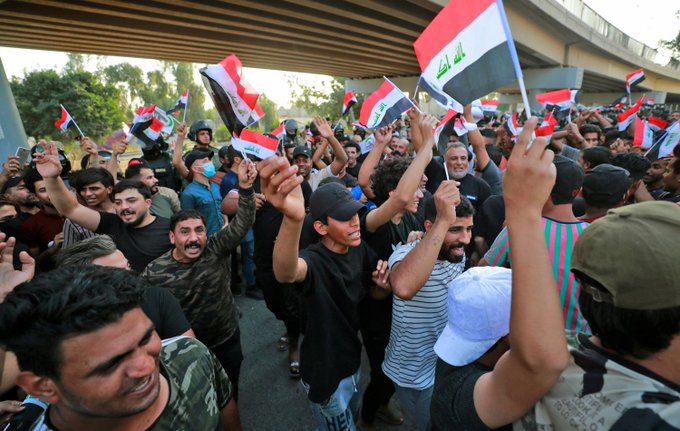AVA TODAY Tweets:
There are a few weeks left in November, the month of December and then it's 2022. Will a final count, an official one, be available before the end of this year?
As unrest continues, PRESS TV reports:
An Iraqi political alliance has warned against movements by the US to assassinate political and military officials in the Arab country and pin the blame on the country’s resistance groups, amid reports that the drones that recently targeted the Iraqi premier’s house flew out of the site of Washington’s embassy in Baghdad.
In an interview with al-Maloumah news agency on Saturday, Mohammad al-Baldawi, a member of the Fatah (Conquest) Alliance in the Iraqi parliament, expressed surprise at the government’s foot-dragging in disclosing the facts about a recent drone attack on Prime Minister Mustafa al-Kadhimi’s residence.
He said that the government accused some parties, whose loyalty to the country has been proven in the fight against the [ISIS] terrorist group, while the real culprit behind the attack was left alone and allowed to destabilize the situation.
The American forces are “the first and last culprit” in the incident since the airspace of Baghdad’s Green Zone, which houses foreign embassies and government offices, is protected by the US Counter-Rocket, Artillery, Mortar (C-RAM) systems and American planes are constantly flying over Iraq, Baldawi added.
In other news, Adal Mirza (ARGUS MEDIA LIMITED) reports, "Russia's Lukoil has submitted a preliminary development proposal for a new oil field in the south of Iraq, that could eventually see output crude grow to 250,000 b/d, the oil ministry announced." And REUTERS notes, "Iraq’s oil minister has said work is underway at four exploration sites in the country’s western desert, the Iraqi state news agency (INA) said on Saturday."
All the time spent on oil. Wasn't the Iraqi government supposed to have been working on diversification? Didn't that goal get announced as long ago as 2006? Yet nothing has been done.
RUDAW runs Raad Al-Jammas' report for AFP:
Iraqi wheat farmer Khamis Ahmad Abbas lost it all when his battle with
drought forced him to abandon his land, pushing him into unemployment.
Experts have warned that record low rainfall, compounded by climate
change, are threatening social and economic disaster in war-scarred
Iraq.
"Growing wheat and barley is a gamble. It all depends on the rain," said the 42-year-old father of nine.
Unable to make ends meet, Abbas quit his land in the Plains of Nineveh,
northeast of Mosul, part of the so-called Fertile Crescent where
agriculture was born 12,000 years ago.
With temperatures soaring above 50 degrees Celsius and little rain, Abbas' fields quickly dried up.
Again, nothing has been done.
The following sites updated:
